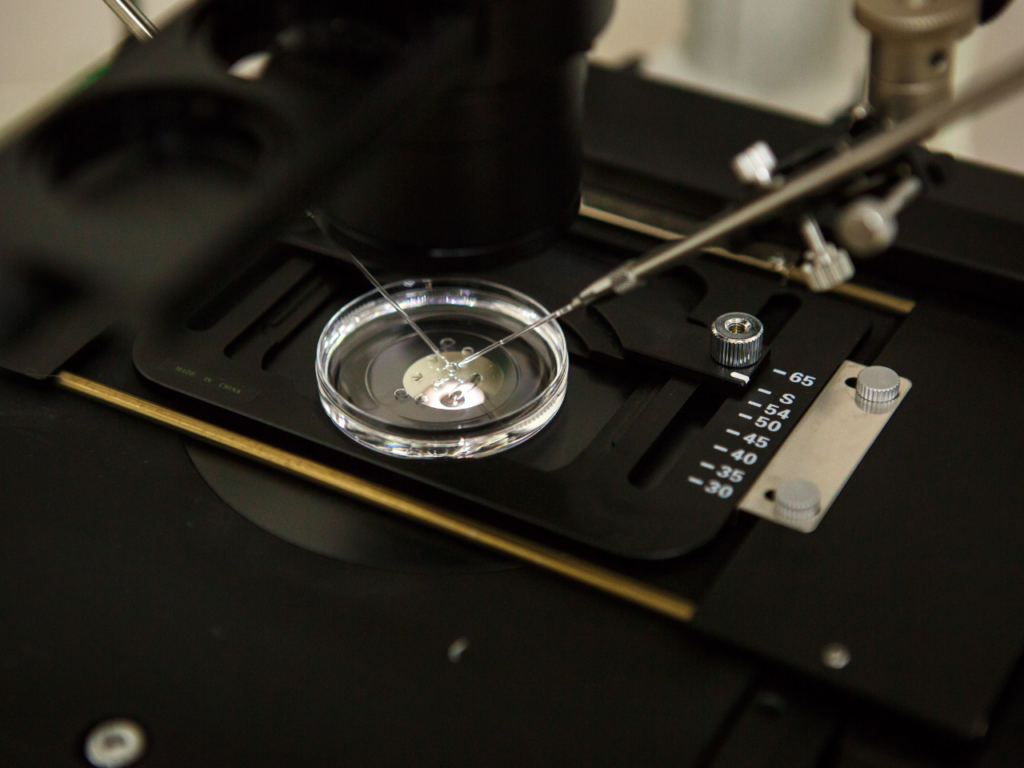Embarking on an IVF (In Vitro Fertilization) journey can be both exciting and overwhelming. For many couples, IVF offers hope after years of trying to conceive. However, How to Prepare Your Body for IVF plays a crucial role in enhancing the chances of a successful pregnancy.
A well-prepared body increases the likelihood of producing high-quality eggs, creating a receptive uterine environment, and supporting embryo implantation. At Mithran Fertility Center, Chidambaram, we help our patients optimize their health through personalized guidance and evidence-based strategies to improve IVF outcomes.
This detailed guide highlights essential tips to prepare your body for IVF success, empowering women to take proactive steps toward achieving their dream of parenthood.
Why is Preparing Your Body for IVF Important?
Proper preparation before an IVF cycle can:
✅ Improve egg quality and ovarian response
✅ Enhance uterine receptivity for implantation
✅ Reduce the risk of IVF failure and miscarriage
✅ Regulate hormonal balance and optimize embryo development
✅ Increase the overall success rate of IVF
Top 6 Tips to Prepare Your Body for IVF Success
1. Follow a Fertility-Friendly Diet
A nutrient-rich, balanced diet improves egg quality, regulates hormones, and prepares the body for a healthy pregnancy.
Fertility-Boosting Foods:
Leafy Greens and Berries: Packed with antioxidants to protect eggs from oxidative stress.
Avocados and Nuts: Provide healthy fats essential for hormone production.
Whole Grains and Legumes: Help regulate blood sugar and insulin levels.
Omega-3 Rich Fish (Salmon, Sardines): Improves egg membrane integrity and supports embryo development.
Eggs and Dairy Products: Rich in protein and essential vitamins like vitamin D and calcium.
Tip: Incorporate foods rich in folic acid, iron, and zinc to support egg quality and uterine health.
2. Maintain a Healthy Weight and Balanced BMI
Maintaining a healthy BMI (Body Mass Index) plays a significant role in improving fertility and increasing the chances of IVF success.
Why a Healthy BMI Matters:
Underweight: Can lead to irregular periods and poor egg quality.
Overweight: Can cause insulin resistance, affecting ovulation and embryo implantation.
Ideal BMI Range for IVF Success:
Aim for a BMI between 18.5 and 24.9 for optimal fertility outcomes.
Tip: Incorporate regular exercise, a balanced diet, and stress management to maintain a healthy weight.
3. Manage Stress and Improve Mental Health
High stress levels can interfere with reproductive hormones and affect IVF outcomes. Finding ways to reduce stress before starting your IVF cycle can make a significant difference.
Effective Stress Management Techniques:
Yoga and Meditation: Improve blood flow to the uterus and regulate hormones.
Acupuncture: Enhances blood circulation and supports uterine receptivity.
Mindfulness and Deep Breathing: Lowers cortisol levels and promotes relaxation.
Tip: Consider counseling or support groups to address emotional concerns and build a positive mindset.
4. Reduce Toxin Exposure and Make Lifestyle Changes
Environmental toxins, pollutants, and harmful chemicals can negatively impact egg quality and disrupt hormonal balance. Limiting exposure to toxins helps create a healthier reproductive environment.
How to Reduce Toxin Exposure:
Avoid BPA and Plastics: Use glass or stainless steel containers.
Switch to Organic Produce: Minimize pesticide exposure by choosing organic fruits and vegetables.
Limit Alcohol and Caffeine: Excessive alcohol and caffeine can harm egg quality.
Quit Smoking: Smoking damages egg quality and affects implantation rates.
Tip: Switch to non-toxic skincare and cleaning products to reduce chemical exposure.
5. Optimize Hormone Levels and Track Ovulation
Balanced hormone levels are essential for successful ovulation and embryo implantation. Understanding your body’s natural cycle can help time the IVF process more effectively.
Key Hormones to Monitor:
Estrogen and Progesterone: Support ovulation and embryo implantation.
Thyroid Hormones: Ensure normal thyroid function for healthy pregnancy outcomes.
FSH (Follicle-Stimulating Hormone): Helps develop mature eggs for fertilization.
Tip: Use ovulation tracking apps or consult with your fertility specialist to monitor hormone levels and identify your fertile window.
6. Take Essential Supplements to Boost Egg Quality
Supplements rich in antioxidants and essential vitamins can improve mitochondrial function, protect eggs from oxidative damage, and enhance overall egg quality.
Recommended Supplements:
Coenzyme Q10 (CoQ10): Boosts mitochondrial energy and enhances egg quality.
Folic Acid: Reduces the risk of neural tube defects and supports healthy embryo development.
Vitamin D: Regulates reproductive hormones and promotes embryo implantation.
Omega-3 Fatty Acids: Improves egg membrane quality and supports embryo growth.
DHEA (Dehydroepiandrosterone): Beneficial for women with diminished ovarian reserve.
Tip: Start taking these supplements at least 3-6 months before IVF to see optimal results.
When Should You Start Preparing for IVF?

It’s best to start preparing your body for IVF at least 3-6 months before the treatment cycle. This timeframe allows your body to respond positively to dietary, lifestyle, and supplement changes, improving egg quality and overall fertility.
Tip: Schedule a pre-IVF consultation at Mithran Fertility Center to develop a personalized preparation plan.
FAQs
You can improve egg quality by:
Following a nutrient-rich diet with antioxidants.
Taking supplements like CoQ10 and omega-3 fatty acids.
Reducing stress through yoga and meditation.
Avoid processed foods, sugary snacks, excessive caffeine, and alcohol as they can affect hormone levels and egg quality.
Maintaining a healthy BMI ensures proper hormonal balance, improves egg quality, and increases the likelihood of embryo implantation.
Yes, high stress levels can interfere with reproductive hormones and reduce the chances of IVF success. Engaging in stress-reduction techniques can improve outcomes.
It’s best to start taking fertility supplements at least 3-6 months before IVF to allow time for them to enhance egg quality and reproductive health.
Conclusion
Preparing your body for IVF involves adopting a healthy lifestyle, optimizing egg quality, and balancing hormone levels to create the best environment for successful fertilization and implantation.
At Mithran Fertility Center, Chidambaram, we are dedicated to supporting you throughout your IVF journey with personalized care, advanced technologies, and emotional support to help you achieve your dream of parenthood.




